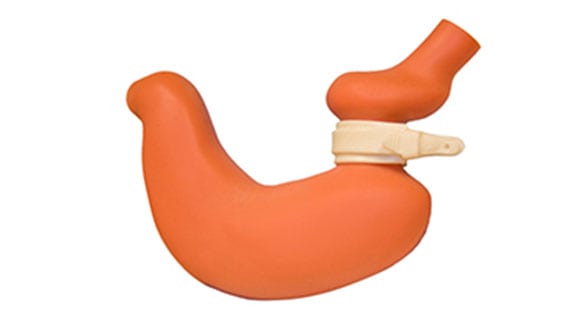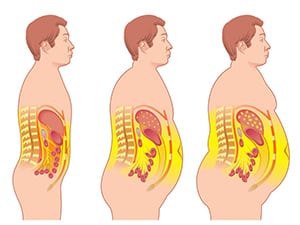There are several types of weight loss surgery that surgeons will perform on a morbidly obese patient who meets certain criteria. Some of the criteria include having co-occurring conditions such as:
- Type 2 diabetes mellitus
- Severe sleep apnea
- High blood pressure
- Heart disease


 A surgeon must complete a careful evaluation of a patient before they can have a weight loss procedure, and in some cases, a patient must lose a certain amount of weight first for approval. The reason for needing to lose weight first is because holding back the layers of fatty tissue over the surgical site is difficult, and this extra weight puts a lot of pressure on the internal organs during the recovery process. The patients who are required to lose weight before a surgical procedure often weigh 500 pounds or more, and they must follow a very restrictive diet that includes high levels of protein and almost no carbohydrates. By eating tiny portions of food five or six times a day, a patient’s stomach may shrink slightly, and their body will produce less stomach acid. The production of stomach acid in the stomach produces hormones and signals to the brain that increase a feeling of hunger. By reducing food portions and eating certain types of food, these signals decrease, helping patients to potentially have more success after their weight loss surgery.
A surgeon must complete a careful evaluation of a patient before they can have a weight loss procedure, and in some cases, a patient must lose a certain amount of weight first for approval. The reason for needing to lose weight first is because holding back the layers of fatty tissue over the surgical site is difficult, and this extra weight puts a lot of pressure on the internal organs during the recovery process. The patients who are required to lose weight before a surgical procedure often weigh 500 pounds or more, and they must follow a very restrictive diet that includes high levels of protein and almost no carbohydrates. By eating tiny portions of food five or six times a day, a patient’s stomach may shrink slightly, and their body will produce less stomach acid. The production of stomach acid in the stomach produces hormones and signals to the brain that increase a feeling of hunger. By reducing food portions and eating certain types of food, these signals decrease, helping patients to potentially have more success after their weight loss surgery. Malabsorptive weight loss surgeries are designed to reduce the absorption of foods to decrease the number of calories that a patient consumes. To decrease caloric absorption, the stomach or other digestive organs are reduced in size with a variety of methods such as sectioning a stomach with bands or redirecting internal organs. Surgeons can place bands on certain areas of the stomach, and most bands are adjustable. Another type of restrictive weight loss surgery is removing a portion of the stomach, and this surgery is irreversible. With a
Malabsorptive weight loss surgeries are designed to reduce the absorption of foods to decrease the number of calories that a patient consumes. To decrease caloric absorption, the stomach or other digestive organs are reduced in size with a variety of methods such as sectioning a stomach with bands or redirecting internal organs. Surgeons can place bands on certain areas of the stomach, and most bands are adjustable. Another type of restrictive weight loss surgery is removing a portion of the stomach, and this surgery is irreversible. With a  Your doctor can talk with you more about your choices and will evaluate your current medical health and medical history to determine if you would benefit from a certain type of weight loss surgery.
Your doctor can talk with you more about your choices and will evaluate your current medical health and medical history to determine if you would benefit from a certain type of weight loss surgery. The average number of pounds lost from a weight loss surgery depends on the type of procedure. Most patients lose the majority of their excess weight after 10 months, but researchers are more interested in long-term maintenance. One of the main goals is for patients to be able to reduce their secondary dangerous conditions, like
The average number of pounds lost from a weight loss surgery depends on the type of procedure. Most patients lose the majority of their excess weight after 10 months, but researchers are more interested in long-term maintenance. One of the main goals is for patients to be able to reduce their secondary dangerous conditions, like